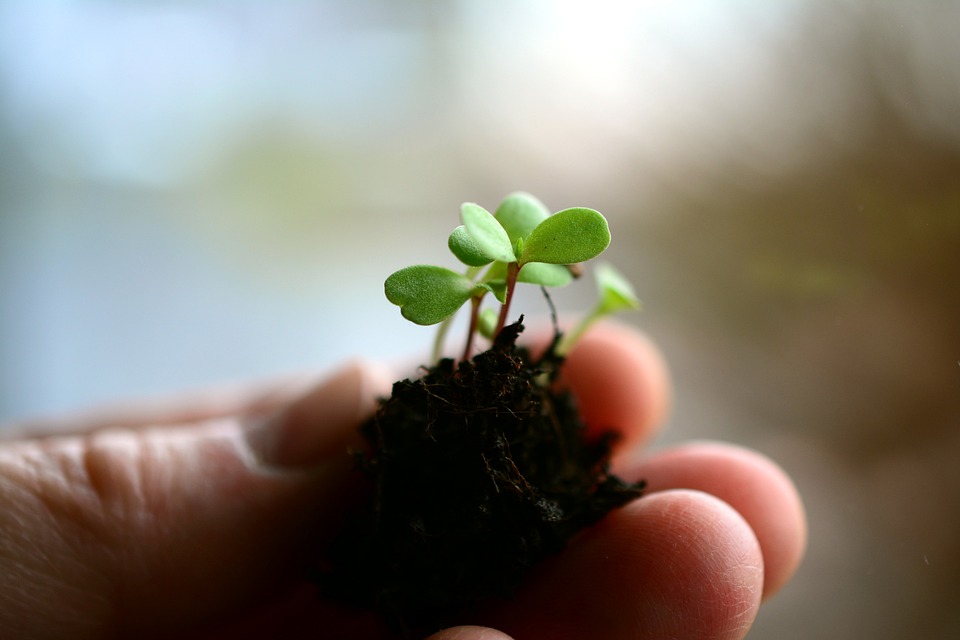Introduction
When it comes to gardening, soil quality plays a significant role in the health and productivity of your plants.
As experienced gardeners know, nurturing and improving soil quality is an ongoing process that requires attention
and a deep understanding of the soil’s composition and needs. In this article, we will provide you with expert
advice on how to dig deeper into your garden’s soil and enhance its fertility and structure.
The Importance of Soil Quality
Healthy soil is the foundation of a successful garden. It provides support for plant roots, stores and releases
nutrients, and holds water for later use. Good soil structure ensures proper drainage, aeration, and encourages
beneficial microbial activity. In contrast, poor soil quality can lead to stunted growth, nutrient deficiencies,
and increased susceptibility to diseases and pests.
Understanding Your Soil
Before taking any actions to improve your soil, it is essential to understand its current state. Conducting a
soil test is highly recommended, as it will provide you with valuable information about pH levels, nutrient
deficiencies, and organic matter content. Knowing your soil’s characteristics will allow you to tailor your
efforts towards creating an optimal environment for your plants.
Amending Soil with Organic Matter
Organic matter is a key ingredient in nurturing and improving soil quality. Compost, well-rotted manure, leaf
mold, and kitchen scraps are all excellent sources of organic matter. Adding organic matter to your soil improves
its structure, enhances its water retention capacity, increases nutrient availability, and encourages
beneficial soil organisms. Aim to incorporate organic matter regularly, especially in the form of compost, to
continuously replenish and enrich your soil.
Enhancing Soil Drainage
If your soil has poor drainage, it can lead to waterlogged roots and create an environment suitable for fungal
diseases. To improve drainage, consider incorporating coarse sand or fine gravel into your soil. These amendments
will promote water movement and prevent waterlogging. Additionally, raised beds or mounding the soil can help
create a well-drained environment for your plants.
Addressing Soil pH Imbalances
pH levels significantly impact nutrient availability to plants. Most vegetables and flowers prefer slightly
acidic to neutral soil, with a pH range of 6.0 to 7.0. If your soil is too alkaline or acidic, you can make
amendments to adjust its pH levels. Adding lime raises soil pH, while sulfur or peat moss lowers it. Conducting
a soil test will guide you in determining the appropriate adjustments needed to achieve optimal pH levels.
Promoting Soil Health with Crop Rotation
Crop rotation is a valuable practice that improves soil health and minimizes the risk of disease and pest
buildup. By alternating crops in different areas of your garden every year, you prevent the depletion of specific
nutrients and reduce the likelihood of pests and diseases overwintering. For example, rotating legumes, which fix
nitrogen into the soil, with heavy-feeders like tomatoes or leafy greens can help maintain a nutrient-balanced
soil.
Watering and Mulching Techniques
Proper watering techniques are essential to maintain soil moisture and plant health. Avoid overwatering, as it can
leach nutrients and suffocate plant roots. Instead, water deeply and less frequently, allowing the soil to dry
out slightly between watering sessions. Mulching is another beneficial practice that helps retain soil moisture,
suppress weed growth, and regulate soil temperature. Organic mulches like straw, wood chips, or compost can be
applied to the soil surface.
FAQs Section
Q: How often should I conduct a soil test?
A: It is recommended to conduct a soil test every two to three years, or whenever you observe noticeable changes in
your plants’ health and vigor.
Q: Can I use chemical fertilizers instead of organic matter?
A: While chemical fertilizers can provide quick nutrient fixes, relying solely on them can be detrimental to your
soil’s long-term health. Organic matter offers multiple benefits for the soil’s structure, water-holding
capacity, and microbial diversity.
Q: How deep should I amend the soil with organic matter?
A: It is recommended to mix the organic matter into the top 6-8 inches of soil. This depth allows plant roots to
access essential nutrients and moisture.
Q: Can I reuse the water from boiled vegetables or pasta?
A: Yes, the water from boiling vegetables or pasta can be utilized for watering plants. Just make sure to let it
cool down before using it.
Q: What is the purpose of adding mulch?
A: Mulching insulates the soil, prevents evaporation of moisture, suppresses weed growth, and adds organic matter
to the soil as it breaks down.




